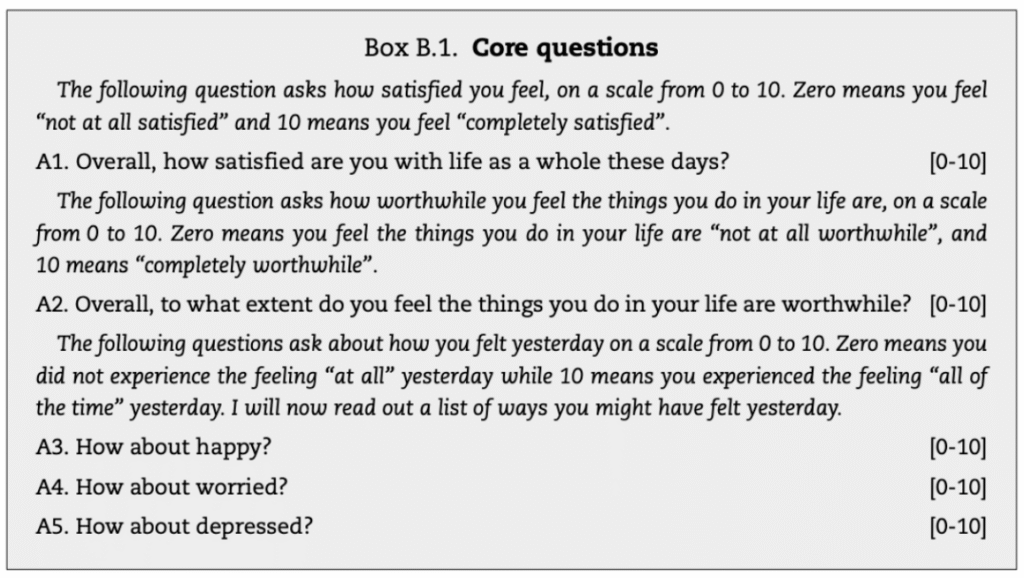The well-being of employees is not only vital for happy and productive workers, it’s also crucial for organizational success. There’s a strong link between workplace wellness and key performance indicators, like productivity, retention, and recruitment (1,2).
Activating managers as wellness ambassadors or wellness program coordinators enables you to leverage existing manager skills and employee-manager relationships to create and sustain a successful wellness program.
This post explains why managers should be provided with the necessary training and responsibilities to become a wellness program ambassador.
What Is the Difference Between Activating Managers and Wellness Ambassadors?
Managers hold a formal leadership role, typically responsible for overseeing numerous employees.
Wellness ambassadors don’t have to be managers. However, providing training for managers to become ambassadors may prove beneficial for many organizations = find out why below.
Why Involve Managers as Wellness Ambassadors?
Managers, especially middle management – those who have a direct relationship and connection with employees – are integral to shaping work environments that support behaviour change (3), and play a fundamental role in the successful implementation of workplace wellness and health promotion (4).
According to Forbes, employees want to receive permission from their managers to participate in wellness activities, such as taking a walk at lunchtime or attending a company yoga class (5). Employees want the go-ahead and support to engage in wellness initiatives, even when offered by the company.
Employee activation sometimes needs a little nudge. This is where a wellness ambassador comes in.
Gallup found that managers are most responsible for employee engagement (6). It makes sense to empower managers as wellness ambassadors to improve further employee engagement, happiness, satisfaction, and work performance.
However, managers, in particular older managers, saw the largest decrease in well-being in 2024 (6). Housing costs and inflation are most likely to blame, so compensating managers for their new role as wellness ambassadors or ambassadors for mental health will likely improve engagement further.
BetterMe has excellent tools for your business all in one place: a personalized approach to health and wellness, 1,500 workouts for every fitness level, a variety of meal plans and trackers to satisfy any dietary needs, mental health guides, and employer support. Discover all the options now!
What Training Do Wellness Ambassadors Need?
There are no mandatory qualifications or certifications required for managers to become wellness ambassadors.
However, organizations should consider investing in structured workplace wellness and mental health training.
For example, a mental health first aid training certification, workshops on nutrition and physical activity, data analysis, or even sleep expertise. Additional qualifications and certifications help managers deliver better programs with confidence to activate employees.
In addition, ongoing development should be provided. Wellness and healthcare ambassadors should be given continual development by attending workshops, webinars, and other training opportunities.
You can even provide training certificates that are organization dependent. For example, if you run an insurance firm and employees spend a lot of time sedentary, you could provide ambassadors with chair yoga classes or other forms of self-care or spiritual wellness teaching.
Read more: 5 AI Tools That Help HRs Automate and Scale Wellness
How Can Companies Motivate Wellness Ambassadors?
Companies can motivate their wellness ambassadors by celebrating ambassador efforts and providing recognition.
Recognition may include:
- Small perks like gift vouchers, ambassador badges, or extra paid time off
- Continuous development opportunities to improve career progression
- Handwritten, personalised thank you cards or public acknowledgement
- Visible leadership support
Furthermore, wellness ambassadors should be given time to focus on their new role in the organisation. Allocate time in their schedule weekly to dedicate to new responsibilities, rather than adding more tasks and responsibilities to their existing management role.
If possible, show the impact of their work and workplace initiatives. For example, this could include participation rates from activities such as company yoga sessions or meditation, or data from campaigns based on employee feedback, which shows increases in employee engagement and morale (collected via anonymous survey data).
Continuous development and training opportunities should also be provided.
When advertising for new middle management roles, consider adding wellness ambassador responsibilities.
Read more: 15+ Fall Wellness Challenge Ideas to Reignite Employee Engagement
What Strategies Help Wellness Ambassadors Engage Teams?
By using an employee activation platform, well-being and mental health ambassadors can better engage teams with structured activities, like short, energizing fitness sessions, workplace wellness challenges, and even 1-on-1 coaching.
In addition, personalize your program to your organization and team. Using a generic program won’t get you the best results. So take the time to conduct a needs assessment and talk to employees to hear what they want in a program.
How Can Wellness Ambassadors Measure Program Impact?
Wellness programs have the potential to increase workplace productivity, employee well-being, and reduce medical and healthcare costs (7).
But how can you measure program impact?
You can use regular employee data such as sick days and absenteeism, health care and medical claims, and employee turnover. Feedback from one-to-one check-ins and survey data can also be used to understand the broader impact of a wellness program.
Oxford University’s Wellbeing Research Centre suggests measuring subjective workplace well-being, which they define as how employees think and feel at work (2). They recommend measuring job satisfaction, workplace affect, and meaning and purpose at work.
The OECD provides some subjective guidelines and core questions you can administer to employees in survey form to collect more data (8). You can see these below.
Wellness ambassadors can use these core questions as a foundation for collecting information about the success of their program and initiatives.
BetterMe’s corporate wellness program includes an engagement dashboard for ambassadors. It gives real-time participation insights to help track progress and optimize program results.
What Challenges Do Wellness Ambassadors Face?
Middle managers who serve as wellness ambassadors often face several common challenges when implementing a new wellness initiative.
Continue reading to discover common obstacles with advice on how to ensure program adherence and success.
- A lack of time for implementation
Research has shown that managers who act as ambassadors find it difficult to fit their workplace health promotion activities into their work schedule (1). Organizations should consider this and allocate time each week for tasks related to the role.
For example, one hour a day for five days, or even a full day once a week or every fortnight to plan and review wellness activities, implementation, and analyze results.
Ethical issues
Personal health is the responsibility of employees. This will always be true. However, managers and ambassadors have raised concerns surrounding the ethical issues of interfering with employees’ health.
To address these issues, ambassadors should make wellness activities and initiatives voluntary, not mandatory. All activities should be inclusive, and this should be represented in activity promotion, whether via email, app, or delivered in person.
In addition, ensure activities are made inclusive for remote workers. You can host extra sessions on Zoom or invite them to join the main session from home.
Invite employees to give feedback on initiatives and ensure this is done confidentially. This can help you improve future activities and participation rates, and allows you to further enhance inclusivity by using feedback.
Are you looking to transform both your business and the lives of your team members? BetterMe corporate wellness solutions provide a holistic approach to physical and mental health that boosts productivity and job satisfaction.
- Uncertainty and engaging with employees
Managers play an absolutely essential role in the successful implementation of a workplace health program. However, wellness program coordinators often feel uncertain about their role, especially when engaging with employees (1).
To address this possible challenge, ethics training and participation training should be provided.
If you’re using an employee wellness program like BetterMe, ambassadors get access to participation insights and other engagement metrics. This allows you to track participation, measure progress, and get real-time insights in one place, allowing you to adapt the program as needed for better engagement.
How Can Companies Sustain Engagement from Wellness Ambassadors?
Starting a new wellness initiative or program may provide initial results, but over weeks or months, participation rates and engagement may decline.
Research has shown that workplaces that provide the following increase the likelihood of successful workplace interventions, such as (9):
- Management support
- Comprehensive programing
- A needs assessment
- Flexibility in program implementation (in the presence of challenges)
Wellness ambassadors should conduct a needs assessment specific to your organization.
What works for one workplace may not work for another. By identifying areas for improvement, such as a lack of motivation, ambassadors can propose changes to address the problem and implement specific initiatives to address these concerns.
To ensure wellness ambassadors can effectively fulfill their new responsibilities, allocate resources and time in their calendars to work on ambassador-related tasks.
Also, make sure they have someone to talk to and can take care of their own wellness and mental health before overseeing the organisation’s initiatives.
Download our Ready-Made Communication Templates for Wellness Ambassadors (PDF)—email and Slack/Teams-ready copy to help ambassadors launch initiatives, drive participation, and follow up consistently.
The Bottom Line
Empowering managers to serve as wellness ambassadors is one of the most effective ways to strengthen workplace well-being, boost employee engagement, and improve organizational performance. When managers receive proper training, support, and dedicated time for wellness duties, they become catalysts for healthier habits, stronger team morale, and a more positive work culture.
With the right tools, structured development, and leadership backing, wellness ambassadors can drive meaningful, measurable improvements—helping both employees and the organization thrive. BetterMe’s corporate wellness platform gives ambassadors everything they need to engage teams, track progress, and create a sustainable well-being strategy that delivers real results.
DISCLAIMER:
This article is intended for general informational purposes only and does not serve to address individual circumstances. It is not a substitute for professional advice or help and should not be relied on for making any kind of decision-making. Any action taken as a direct or indirect result of the information in this article is entirely at your own risk and is your sole responsibility.
BetterMe, its content staff, and its medical advisors accept no responsibility for inaccuracies, errors, misstatements, inconsistencies, or omissions and specifically disclaim any liability, loss or risk, personal, professional or otherwise, which may be incurred as a consequence, directly or indirectly, of the use and/or application of any content.
You should always seek the advice of your physician or other qualified health provider with any questions you may have regarding a medical condition or your specific situation. Never disregard professional medical advice or delay seeking it because of BetterMe content. If you suspect or think you may have a medical emergency, call your doctor.
SOURCES:
- Implementing Workplace Health Promotion – Role of Middle Managers (2017, researchgate.net)
- Measuring Workplace Wellbeing – Wellbeing Research Centre, University of Oxford (2023, wellbeing.hmc.ox.ac.uk)
- Impact of Engaging Middle Management in Practice Interventions on Staff Support and Learning Culture: A Quasi-Experimental Design (2013, onlinelibrary.wiley.com)
- Implementing Workplace Health Promotion – Role of Middle Managers (2017, researchgate.net)
- The Role Managers Play in Shaping Employee Well-being (2017, forbes.com)
- State of the Global Workplace Report (2021, gallup.com)
- What Do Workplace Wellness Programs Do? Evidence from the Illinois Workplace Wellness Study (2019, pmc.ncbi.nlm.nih.gov)
- OECD Guidelines on Measuring Subjective Well-being (2013, oecd.org)
- Health Ambassadors in the Workplace: A Health Promotion Intervention Mobilizing Middle Managers and RE-AIM Evaluation of Outcomes (2021, pubmed.ncbi.nlm.nih.gov)













